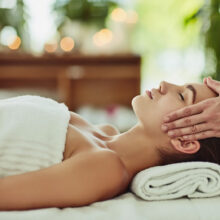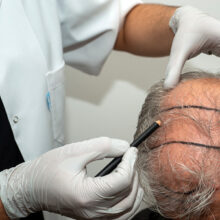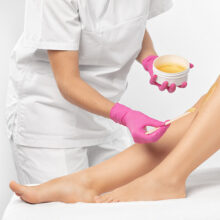Fact or Fiction: Oils Cause Acne, Sunscreen Blocks Vitamin D and Other Skin Care Myths
- Published: Sunday, March 22nd 2015
- in Beauty
As a skin coach, I am fortunate to travel around the country in my quest to educate everyone about creating a healthy skin lifestyle. In addition to the standard questions about which products to use, how often, and when, it’s almost certain that I’ll also bust a few myths related to beauty, health, and skin care. To keep you in the know, here are a few of the myths I bust most often:
Myth: Oils will make my skin break out.
Truth: With high concentrations of vitamins, antioxidants, and omega-3 fatty acids, essential oils are proven to soothe, restore, and instantly transform skin. The added benefit of using essential oils is the body’s stress-release response to the molecules in the oil, which elicits a sense of wellbeing and calm.
Essential oils can be incorporated into any part of your skin care routine, and are luxurious when included in masks and moisturizers. While wearing a mask, take long, slow, deep breaths to allow the oils to enter your body and calm your mind. When using a moisturizer with essential oils, massage in the product using slow, upward, circular motions for nourished skin and a clear mind.
Myth: If I wear sunscreen, I won’t get enough vitamin D.
Truth: You can (and should) wear your sunscreen and still get D. The body makes vitamin D when skin is directly exposed to UVB rays of the sun. Many researchers initially believed that sunscreen was responsible for higher rates of D deficiency. However, only one in five people wears sunscreen on a daily basis and a majority of those only wear sunscreen on their face. Therefore, the statistics didn’t add up.
With the highest deficiencies occurring in women with darker skin (African-American, Latina, Mediterranean, and Asian women of childbearing age), researchers began to realize that heavier pigment in skin acted as a natural sunscreen by blocking out UVB. People with darker skin require much longer sun exposure to produce adequate vitamin D.
Something else you may not know about D: it’s a hormone, not a vitamin. When levels of D are not in balance, depression, premenstrual syndrome and sleeping disorders may be elevated.
Myth: Bronzers and self-tanners will keep me from getting sunburn.
Truth: These products often give a false sense of security from burning. It’s important that you don’t go into the sun for several hours after putting on products that bronze because there are chemicals in them that make your skin more sensitive to sun exposure. Instead, apply these products later in the day and sleep in them.
Myth: Overeating sugar is only bad for my weight, not my skin.
Truth: A few years ago, I gave up processed sugars. This is a tough process, but the rewards to your body, skin and overall health make it worthwhile.
Overeating sugar can make skin dull and wrinkled. To blame is a natural process known as glycation. With glycation, the sugar in your bloodstream attaches to proteins to form harmful new molecules called advanced-glycation-end products (AGEs). As AGEs accumulate, they damage adjacent proteins. Most vulnerable to the damage are collagen and elastin, which keep skin firm and elastic.
I suggest following an anti-inflammatory diet with healthy fats, lean protein, fiber, and antioxidants to limit glycation. Eat proteins first as they will balance the insulin spikes of the complex carbs.




